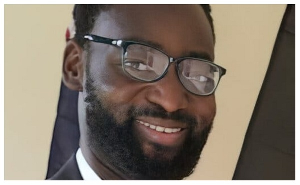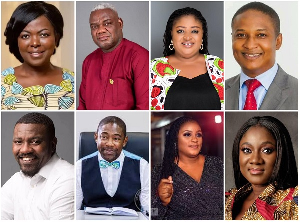In a 2018 interview with a renowned professor at the University of South Africa, we discussed the danger of calling things the wrong names.
The subject of the interview was violent groups in Africa. I called some of them “Islamist,” but the professor thought that that nomenclature hides the material reality of the issues surrounding subaltern violent groups. If you call things by their wrong names, you invent things that do not exist.
The professor’s advice rings true on many subjects in Africa.
In Kenya, considered one of Africa’s leading democracies, police shot at civilians protesting against a finance bill that was going to up taxes. Several Kenyans have died. Many more are injured.
What do we call this?
Are we giving the happenings in Africa’s political landscape lately their correct names? What are their proper names, even? And who is qualified to do that naming? Or shaming?
We are told that although most Africans desire to live in a democracy, the proportion of people who believe they actually do falls almost every year. Is a high demand for democracy and a low supply of it a case for democracy? Or a conundrum that undercuts its legitimacy?
Is what is happening in Kenya a true reflection of what we have been told Kenya is or was? Is what is happening in Kenya an African version of January 6th?
In hindsight, was Mali a bulwark of democracy in West Africa, as Western reports and researchers told us before a band of insurgents stormed Bamako after running down Timbuktu, Kidal and Gao?
Was Burkina Faso truly okay and calm under Compaore? What benefit is there to a calm underneath which flames smoulder to explode eventually?
Was Niger really democratic amid a region of authoritarianism simply by having an elected president there? And does one coup take all the democracy away?
Given the current events in many African countries, what would we call a similar situation occurring in the future in countries we admire as model democracies in Africa?
In any case, is democracy just about elections and the “peaceful” transfer of presidential power, even if people are living in the past and jilted by tomorrow?
Even if voters lose their lives at the polls?
Is democracy just about people having their say? Even if it holds no sway and only a few have their way anyway?
Does democracy exist in Ghana, Kenya, or Botswana? If so, what type of democracy is it? Are there alternatives? If so, might we find and try them out?
Who is naming our democracy? Who is spinning this democracy for us?
There are definitely more questions than answers. Can liberal democracy survive the period between now and when we arrive at acceptable answers? Still, one thing we must note: governing our people through facades and political misnomers can backfire.
Across our continent, the people are whimpering and gnarling from the margins of politics for the Centre.
In some countries, this manifests as peaceful protests. In others, it is not so peaceful. Yet, in many others, popular frustrations have spurred on coups and militarization of politics, while in others, there are silent screams of violence waiting to be heard. And felt. Others have turned to God.
Whatever it is, our politics must wholly and honestly let the people in by meeting their needs and giving them opportunities and citizenship entitlements.
Or they will crash through the gates of Government House, destroying the building and all that it contains.
Opinions of Sunday, 28 July 2024
Columnist: Dr Muhammad Dan Suleiman



















